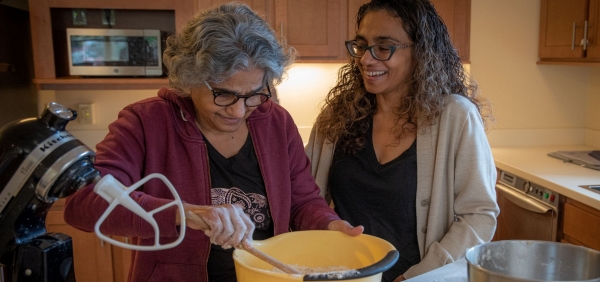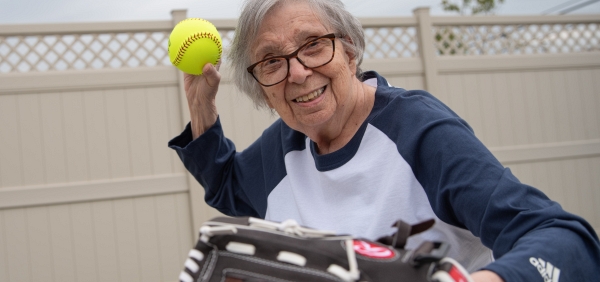How to Respond When a Loved One Asks to Go Home

Many families struggle after moving a loved one into a Memory Care or Assisted Living community. Seniors may feel disoriented by the move and still won’t consider it “home,” which adds to the heartbreak their loved ones experience. Your loved one might ask to return home, but the “home” they’re remembering could be the one they had lived in for years, and it can be difficult to explain to them that this is their home now. Knowing how to respond in this situation can help curb their anxiety.
Reassurance & Comfort
When a senior requests to go home, they may be anxious, scared, or uncomfortable. This may be a good time to give extra hugs or simply sit and talk with them. Trying to reason with them may only cause them to become more agitated. Instead, work with them to make them feel comfortable. Be compassionate, reinforce positive engagement, and actively encourage them. Sometimes asking them questions about home and listening may be helpful. Understanding why they might want to go home is also helpful as you prepare for this discussion.
Listen to the emotions behind your loved one’s words. During your conversation, pay attention to verbal cues, body language, posture, gestures, and facial expressions. These can help you determine the seriousness of their request. Show you’re listening through your own facial expressions, questions and comments. The most important part of this conversation is to acknowledge their feelings. You might try saying, “I know. I wish you could, too. What’s hard for you today?” Then listen to their feelings. Listening can be a powerful solution in such situations.
Validation & Redirection
When a loved one says they want to go home, reminding them they’re already home may just cause them to become anxious or even angry. The reality is your family member is probably remembering a home from their childhood or younger years, so of course where they are now doesn’t feel like home. If this happens, first acknowledge their request and validate their feelings. Next, ask them to tell you about their home, who lives there, what they like most about it, and what they want to do when they get there. This will give you insight into the “home” they’re talking about and give you opportunities for redirection. Daily Caring, a caregiving support website, outlines the technique here.
Distraction may not work for very long, but it gives you a start. It’s important to be respectful and understanding of the senior’s concerns. Bring out a photo album, put on their favorite movie, take them to an activity within the community, or play soothing music. Redirecting their attention away from their desire to go home can involve some trial and error. Remember to be patient and take notice of what works and what doesn’t work.
Listen & React with Care
The conversation about wanting to go home will tug at your heartstrings, but you need to be able to separate your feelings now just as you had to do when making the initial decision to move your loved one into a senior living community. Acknowledge your loved one’s feelings, listen to their thoughts, and perhaps try redirecting their attention with suggestions, such as “Let’s go get a cup of coffee.” Be empathetic, but remember to keep your feelings separate from your loved one’s feelings. If you continue to struggle with what to say when they ask to go home, meeting with the community’s social worker may offer you support.
Get Ahead of Their Behavior
If you’ve noticed your loved one continues to ask about returning home at a specific time of day, one strategy is to get ahead of it. So instead of waiting to react, start an activity ahead of time, one you know they’ll enjoy and find soothing or pleasant. This strategy can help prevent or reduce your loved one’s repeated stressful or distressing behavior.
Artis Is Your Partner in Caregiver Support
Being a caregiver for a loved one can be rewarding and sometimes difficult. Artis Senior Living can help provide education and support throughout your family’s journey. We’re also your partner in navigating care options. For more information about our unique personalized approach to Memory Care and how we can help with your specific situation, contact us today.
Find a memory care location near you or join an upcoming event available for caregivers and professionals.



